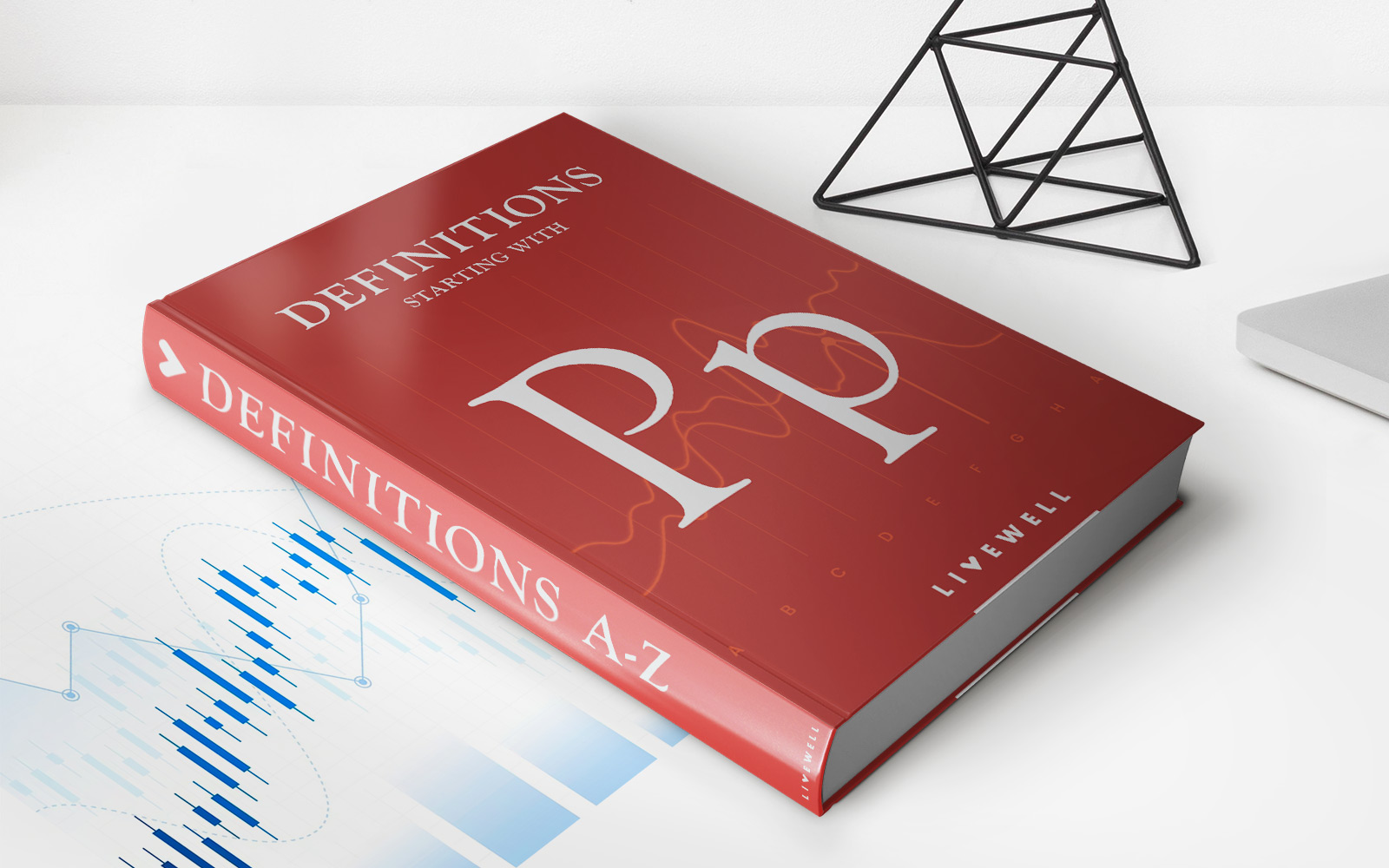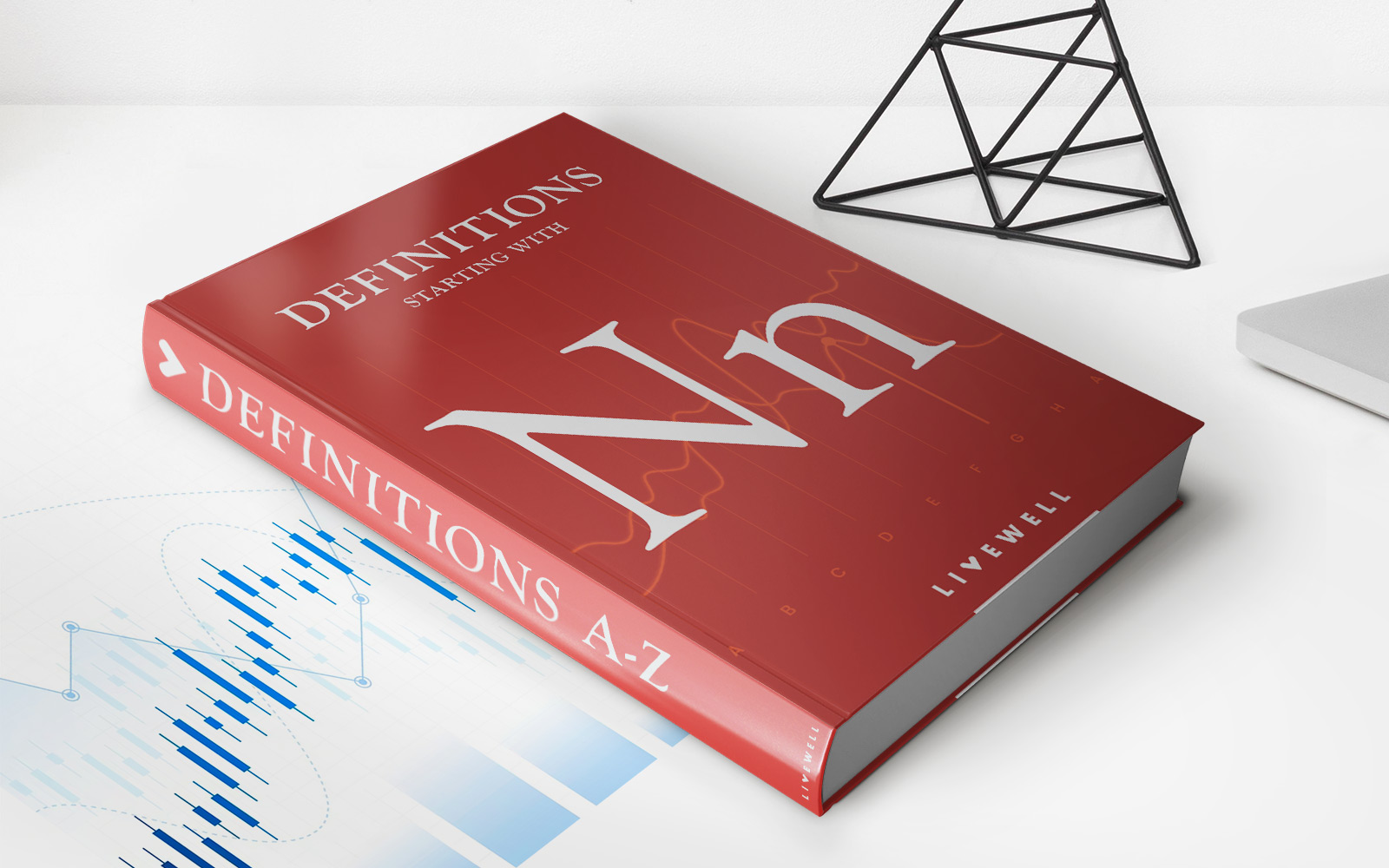Home>Finance>Why Are Certificates Of Deposit Considered A Safe Investment


Finance
Why Are Certificates Of Deposit Considered A Safe Investment
Modified: December 29, 2023
Looking to invest? Learn why Certificates of Deposit are a safe and secure choice in the world of finance. Explore the benefits and start growing your wealth today.
(Many of the links in this article redirect to a specific reviewed product. Your purchase of these products through affiliate links helps to generate commission for LiveWell, at no extra cost. Learn more)
Table of Contents
- Introduction
- Definition of Certificates of Deposit (CDs)
- Characteristics of Certificates of Deposit
- Stability and Safety of Certificates of Deposit
- Federal Deposit Insurance Corporation (FDIC) Coverage
- Low Risk and Guaranteed Returns
- Fixed Interest Rates
- Liquidity and Flexibility
- Disadvantages of Certificates of Deposit
- Conclusion
Introduction
Certificates of Deposit (CDs) are a type of financial instrument that offer individuals and businesses a safe and secure way to invest their money. CDs are issued by banks and credit unions and are often favored by conservative investors who value stability and guaranteed returns. In this article, we will explore why certificates of deposit are considered a safe investment option and examine their key characteristics.
With the volatility and unpredictability of financial markets, many investors seek investments that provide stability and security. Certificates of Deposit fit this criteria as they offer a low-risk investment option with guaranteed returns. Whether you’re saving for a short-term goal, like a down payment on a house, or planning for retirement, CDs can be an attractive choice.
In the following sections, we will delve into what certificates of deposit are, their distinguishing features, and the advantages and disadvantages of investing in them. We will also discuss the role of the Federal Deposit Insurance Corporation (FDIC) in ensuring the safety and stability of CDs.
So, if you’re curious about the benefits of investing in certificates of deposit and want to learn more about this reliable financial instrument, read on to discover why CDs are considered a secure investment option.
Definition of Certificates of Deposit (CDs)
Certificates of Deposit (CDs) are financial instruments offered by banks and credit unions that allow individuals and businesses to deposit funds for a specific period of time, typically ranging from a few months to several years. Unlike regular savings accounts, CDs have a fixed term and offer a fixed interest rate, providing investors with a guaranteed return on their investment.
When you invest in a certificate of deposit, you essentially lend money to the issuing bank or credit union. In return, the financial institution pays you interest on your deposit. The interest rate is predetermined and depends on various factors, such as the length of the CD’s term and current market conditions.
CDs are considered to be a low-risk investment because they are insured by the Federal Deposit Insurance Corporation (FDIC) up to $250,000 per depositor, per institution. This means that even if the financial institution fails, the investor is still protected and will receive their principal and any accrued interest.
One important characteristic of CDs is their fixed term. Once you invest in a CD, you must keep the funds deposited for the entire length of the term. Withdrawing the money before the maturity date may result in penalties, such as the loss of earned interest or a percentage of the principal amount.
Another key feature of certificates of deposit is that they are considered to be “time deposits.” This means that the longer the term of the CD, the higher the interest rate tends to be. Typically, short-term CDs offer lower interest rates, while long-term CDs provide higher returns.
In summary, certificates of deposit are financial instruments that offer a fixed interest rate and a specified term. They are considered low-risk investments and are insured by the FDIC. By understanding the definition and characteristics of CDs, investors can make informed decisions about incorporating them into their investment strategies.
Characteristics of Certificates of Deposit
Certificates of Deposit (CDs) possess several key characteristics that make them an appealing investment option for individuals seeking stability and guaranteed returns. Understanding these characteristics can help investors make informed decisions when considering investing in CDs.
- Fixed Term: CDs have a predetermined term, which can range from a few months to several years. During this time, the invested funds cannot be withdrawn without incurring penalties. This fixed term allows investors to plan their finances and determine when they will have access to their funds again.
- Fixed Interest Rate: Unlike other investments, such as stocks or mutual funds, CDs offer a fixed interest rate for the duration of the term. This means that regardless of market fluctuations, the interest rate on the investment remains steady. This predictability makes CDs an attractive option for risk-averse investors.
- Low Risk: Certificates of Deposit are considered low-risk investments due to their guarantee of principal repayment and interest by the issuing institution. As long as the CD is held at an FDIC-insured bank or credit union, the investor is protected against the risk of financial loss in the event of bank failure.
- Guaranteed Returns: With CDs, investors know exactly how much they will earn by the end of the term. The fixed interest rate ensures that the return on investment is guaranteed, providing a sense of security and stability. This can be particularly appealing in times of economic uncertainty.
- FDIC Insurance: One of the most significant characteristics of CDs is the protection provided by the Federal Deposit Insurance Corporation (FDIC). This federal agency insures deposits made at FDIC-member banks and credit unions up to $250,000 per depositor, per institution. This insurance coverage further enhances the safety and reliability associated with investing in certificates of deposit.
These characteristics make certificates of deposit an attractive option for individuals who prioritize stability and guaranteed returns in their investment decisions. The combination of fixed terms, fixed interest rates, low risk, guaranteed returns, and FDIC insurance all contribute to the appeal and desirability of CDs as a safe investment vehicle.
Stability and Safety of Certificates of Deposit
One of the primary reasons why certificates of deposit (CDs) are considered a safe investment option is their stability and safety. CDs provide investors with a sense of security due to their low-risk nature and various layers of protection.
Low Risk: Certificates of Deposit are known for their low risk profile. Unlike more volatile investments like stocks or bonds, CDs offer a predictable and steady return on investment. With a fixed interest rate and a specific term, investors can accurately calculate the amount they will earn at the end of the CD’s maturity.
FDIC Insurance: The Federal Deposit Insurance Corporation (FDIC) plays a crucial role in ensuring the safety of certificates of deposit. The FDIC provides deposit insurance of up to $250,000 per depositor, per insured bank. This means that even if the issuing bank fails, depositors are protected and will receive their invested principal and any accrued interest up to the insured amount.
Bank Stability: Prior to investing in a CD, it’s important to research and choose a reputable and financially stable bank or credit union. Banks with a strong financial standing are more likely to honor their obligation to repay the invested funds and interest upon maturity. Conducting due diligence and selecting a reliable institution further adds to the overall stability of the investment.
Guaranteed Returns: Certificates of Deposit provide a guaranteed return on investment. The fixed interest rate ensures that investors will receive a predetermined amount of interest at the end of the CD’s term. This predictability contributes to the stability of the investment and allows investors to plan accordingly.
Fixed Term: The fixed term of a CD adds to its stability and safety. Once the investment is made, the funds are locked in for the duration of the term. While this means that the funds cannot be accessed until maturity, it also eliminates the risk of impulsive decision-making during market fluctuations.
Overall, certificates of deposit offer stability and safety to investors who prioritize capital preservation and predictable returns. The combination of low risk, FDIC insurance, bank stability, guaranteed returns, and a fixed term make CDs an attractive investment option for those looking for a secure place to grow their savings.
Federal Deposit Insurance Corporation (FDIC) Coverage
The Federal Deposit Insurance Corporation (FDIC) plays a vital role in ensuring the safety and security of funds invested in certificates of deposit (CDs). Established in 1933, the FDIC is an independent federal agency that provides deposit insurance coverage to depositors in participating banks and savings associations in the United States.
Insurance Coverage: The FDIC provides deposit insurance coverage of up to $250,000 per depositor, per insured bank. This means that if a bank fails, depositors are protected, and they will receive their invested principal and any accrued interest up to the insured amount. The coverage applies to various deposit accounts, including CDs, checking accounts, savings accounts, money market deposit accounts, and more.
Stability and Confidence: FDIC insurance gives investors peace of mind and contributes to the overall stability and confidence in the banking system. Knowing that their funds are insured up to the specified amount provides a level of security, making CDs an appealing investment option for risk-averse individuals.
Easy Access to Information: The FDIC provides a user-friendly website and resources that allow investors to research and verify the insurance coverage of their bank or credit union. The FDIC BankFind database provides detailed information about participating banks, their status, and insurance coverage, ensuring that individuals can make informed decisions about where to invest their money.
Financial Oversight: The FDIC also plays a critical role in promoting the safety and soundness of insured financial institutions. The agency conducts regular examinations and supervises banks to ensure compliance with regulations and maintain financial stability. This oversight helps protect depositors’ funds and contributes to the integrity of the banking system as a whole.
Public Confidence and Banking Stability: The presence of FDIC insurance helps foster public confidence in the banking system. By providing protection against bank failures, the FDIC mitigates potential panic and runs on banks, ensuring the stability and functioning of the financial sector. This stability contributes to the overall health of the economy.
In summary, the FDIC’s deposit insurance coverage is a crucial component of the safety and security associated with investing in certificates of deposit. The protection of deposits up to $250,000 per depositor, per insured bank, instills confidence and stability in the banking system, allowing investors to trust their funds will be safeguarded in the event of bank failure.
Low Risk and Guaranteed Returns
Certificates of Deposit (CDs) are renowned for their low-risk nature and the assurance of guaranteed returns, making them an attractive investment option for individuals seeking stability and security.
Low Risk: CDs are considered low-risk investments because they offer guaranteed returns and the potential for minimal loss of principal. Unlike investments in stocks or bonds, which are subject to market fluctuations, the fixed interest rate of CDs provides stability and shield against market volatility. As long as the CD is held until maturity, investors can be confident in earning the agreed-upon interest rate.
Guaranteed Returns: Investing in a certificate of deposit ensures a guaranteed return on investment. The fixed term and fixed interest rate of CDs mean that investors know exactly how much they will earn at the end of the maturity period. The predictability of returns is particularly appealing for those looking to preserve capital and have a clear understanding of the monetary benefits their investment will yield.
Preservation of Principal: CDs also prioritize the preservation of principal. When investing in a CD, the initial investment amount, also known as the principal, is secure and will be returned in full along with the interest earned at the end of the term. This focus on capital preservation offers peace of mind to conservative investors who prioritize safeguarding their initial investment.
FDIC Insurance: The Federal Deposit Insurance Corporation (FDIC) insures CDs issued by banks and credit unions up to $250,000 per depositor, per insured institution. This insurance coverage further enhances the low-risk nature of CDs by protecting investors against the risk of bank failure. Even in the rare case of a bank default, depositors are guaranteed to receive their principal and any accrued interest.
Consistent and Achievable Returns: The fixed interest rate of CDs allows investors to know exactly how much they will earn over the investment period. These returns are often competitive and can be higher than those offered by savings accounts. For risk-averse individuals who prioritize stability and steady income, the predictable and achievable returns of CDs make them an appealing investment choice.
Length of Terms: CDs offer various term lengths, ranging from a few months to several years. Shorter-term CDs typically have lower interest rates, while longer-term CDs tend to offer higher rates of return. This flexibility allows investors to choose the duration that best suits their financial goals and risk tolerance.
In summary, certificates of deposit offer low-risk investment opportunities with guaranteed returns. The combination of fixed interest rates, preservation of principal, FDIC insurance, and the range of term lengths make CDs an attractive choice for individuals seeking stability, security, and steady income from their investments.
Fixed Interest Rates
One of the key characteristics of certificates of deposit (CDs) is the provision of a fixed interest rate. This feature distinguishes CDs from other investments, such as stocks or bonds, where interest rates can fluctuate over time. Fixed interest rates offer several advantages to investors seeking stability and predictability in their returns.
Predictable Returns: When you invest in a CD, the interest rate is determined upfront and remains fixed for the entire duration of the investment term. This allows investors to accurately calculate the amount of interest they will earn over the lifespan of the CD. The predictability of returns provides peace of mind and allows for effective financial planning.
Stability and Security: Fixed interest rates contribute to the overall stability and security of CDs. Unlike investments tied to market conditions, the returns on CDs are not affected by economic fluctuations or changes in interest rates. With a known interest rate, investors can make informed decisions and have confidence in the returns they will receive at the end of the term.
No Interest Rate Risk: Investing in fixed interest rate CDs protects investors from interest rate risk. This risk refers to the potential for decreasing returns when interest rates rise after the CD has been purchased. By locking in a fixed interest rate, investors are shielded from the impact of rising rates and can enjoy the agreed-upon rate throughout the entire term.
Long-Term Certainty: Fixed interest rates are particularly beneficial for investors who opt for longer-term CDs. With longer-term CDs, interest rates tend to be higher than those offered for shorter-term CDs. Locking in a favorable fixed interest rate for a longer period ensures a consistent and potentially higher return on investment. This can be advantageous for individuals planning for future goals such as retirement, education, or other long-term financial objectives.
Protection against Inflation: Fixed interest rates on CDs help protect against inflationary pressures. In times of rising inflation, the fixed rate of return on a CD ensures that the purchasing power of the investment is preserved. While CDs may not provide significant returns above the inflation rate, they still offer a conservative option for preserving capital in such circumstances.
Overall, fixed interest rates provided by certificates of deposit offer stability, predictability, and protection against interest rate risk. By choosing a CD with a fixed interest rate, investors can enjoy peace of mind, accurate financial planning, and a secure source of returns over the investment term.
Liquidity and Flexibility
While certificates of deposit (CDs) are known for their stability and guaranteed returns, they are also recognized for their liquidity and flexibility. While CDs are designed to be held until maturity, they offer options for accessing funds early and tailoring investments to individual needs.
Limited Liquidity: CDs are considered less liquid than other financial instruments, such as regular savings accounts. Unlike a savings account where funds can be withdrawn at any time, CDs have specific terms during which the funds must remain invested. Withdrawing money before the CD reaches maturity can result in penalties, which may include a loss of earned interest or a percentage of the principal amount.
Early Withdrawal Penalties: Most CDs have penalties for early withdrawal, which serve as a deterrent to accessing funds before the maturity date. These penalties are designed to incentivize investors to keep the money invested for the agreed-upon term. It is important for individuals to carefully consider their financial needs and investment timelines to avoid incurring these penalties.
CD Laddering: One strategy that investors commonly use to maintain liquidity while benefiting from higher CD interest rates is CD laddering. This strategy involves spreading investments across multiple CDs with varying maturity dates. By having CDs maturing at different intervals, investors can have access to a portion of their funds periodically while still taking advantage of higher interest rates on longer-term CDs.
Renewal and Rollover Options: At the end of the CD’s term, investors often have the option to renew or roll over their investment into a new CD. This flexibility allows individuals to reassess their financial goals, evaluate prevailing interest rates, and make choices that align with their future needs. Renewing or rolling over a CD can be beneficial for maintaining a consistent investment strategy or taking advantage of changing market conditions.
CD Withdrawal Options: In some cases, CDs offer limited withdrawal options without incurring penalties. For example, some CDs may allow investors to withdraw interest earned, subject to certain conditions, even before the maturity date. This feature adds a layer of flexibility for individuals who may require access to a portion of their funds while still retaining the investment.
While certificates of deposit are designed to be long-term investments, they still offer liquidity and flexibility options to suit individual needs. By understanding the terms, penalties, and available options, investors can make informed decisions that strike a balance between earning competitive returns and maintaining access to their funds when necessary.
Disadvantages of Certificates of Deposit
While certificates of deposit (CDs) offer numerous advantages, there are also some disadvantages to consider before investing. Understanding these drawbacks can help investors make informed decisions about including CDs in their overall investment strategy.
Limited Liquidity: CDs are known for their lack of liquidity compared to other investments. Once you invest in a CD, the funds are bound for the duration of the term. Withdrawing money before the CD reaches maturity can result in penalties, such as the loss of earned interest or a percentage of the principal amount. This lack of liquidity can be problematic if you require immediate access to your funds or if your financial circumstances change unexpectedly.
Potential Opportunity Cost: As CDs are low-risk investments, they generally offer lower interest rates compared to other investment options like stocks or bonds. This lower interest rate means that there may be an opportunity cost in terms of potential returns. If you have a longer investment horizon and can tolerate some level of risk, you might consider exploring other investment vehicles that offer potentially higher returns.
Fixed Interest Rates: While fixed interest rates offer stability and predictability, they can also be a disadvantage in certain scenarios. If interest rates rise after you have invested in a CD, you may miss out on the opportunity to earn higher returns. Additionally, if you lock your funds into a longer-term CD, you may miss the chance to take advantage of higher rates should they become available in the future.
Inflation Risk: CDs might not keep pace with inflation over time. Inflation erodes purchasing power, and if the interest earned on a CD does not outpace inflation rates, the real value of the investment may diminish. It is important to consider the potential impact of inflation on the purchasing power of your CD returns, especially if you are investing for longer-term financial goals.
Opportunity for Diversification: Investing too heavily in CDs can limit your portfolio diversification. While CDs offer stability and safety, they may not provide the potential for significant growth or exposure to different asset classes. Diversification across various investments can help manage risk and potentially enhance overall returns. It is essential to consider the appropriate balance between safety and growth within your investment portfolio.
These disadvantages should be carefully weighed against the advantages of CDs. While they may not be the most flexible or high-returning investment option, CDs can still serve as a valuable component of a well-rounded portfolio, particularly for individuals seeking stability, capital preservation, and guaranteed returns.
Conclusion
Certificates of Deposit (CDs) provide investors with a safe and reliable way to grow their savings while enjoying stability and guaranteed returns. The defining characteristics of CDs, such as fixed interest rates, low risk, and FDIC insurance coverage, make them an attractive investment option for individuals seeking security and steady income.
While CDs offer numerous advantages, such as predictable returns and protection of principal, there are also limitations to consider. CDs are less liquid than other investments, and early withdrawal penalties can hinder immediate access to funds. Additionally, the fixed interest rates of CDs may not keep pace with inflation, and there might be missed opportunities for potentially higher returns in a rising interest rate environment.
Despite these limitations, certificates of deposit can play a valuable role in an investor’s portfolio. They offer stability, capital preservation, and a guaranteed rate of return. CDs can be particularly suitable for individuals with short- to medium-term financial goals, risk-averse investors, or those who prioritize a conservative investment strategy.
When considering investing in CDs, it is essential to evaluate personal financial needs, time horizon, and risk tolerance. By diversifying investments and carefully planning the allocation of funds, individuals can strike a balance between safety and growth within their overall investment strategy.
In conclusion, certificates of deposit are a safe and secure investment option, offering stability, guaranteed returns, and FDIC insurance protection. Whether you are saving for a down payment on a house, planning for retirement, or seeking to grow your savings with minimal risk, CDs can be an excellent addition to your investment portfolio. By understanding the advantages and disadvantages of CDs and considering your financial goals, you can make well-informed decisions that align with your investment objectives.














